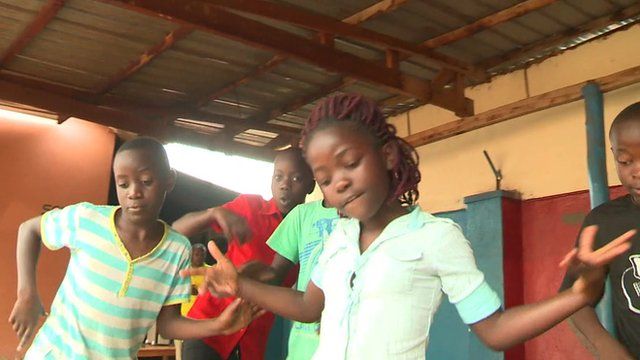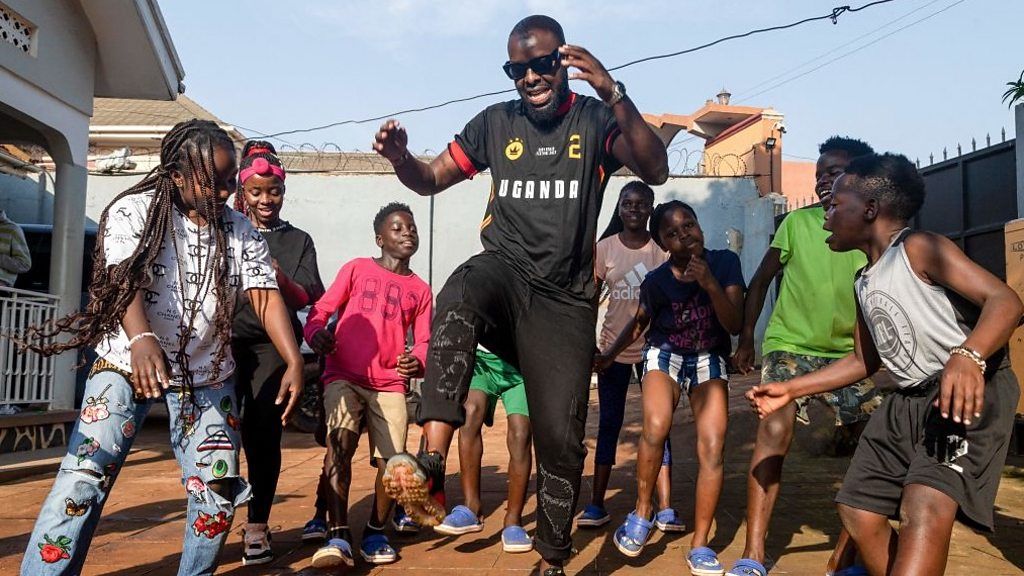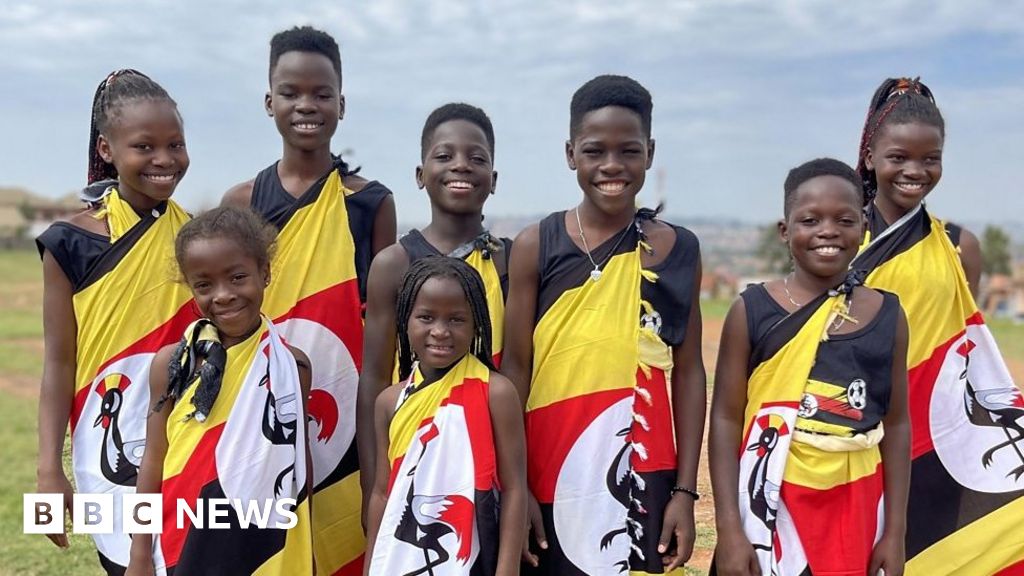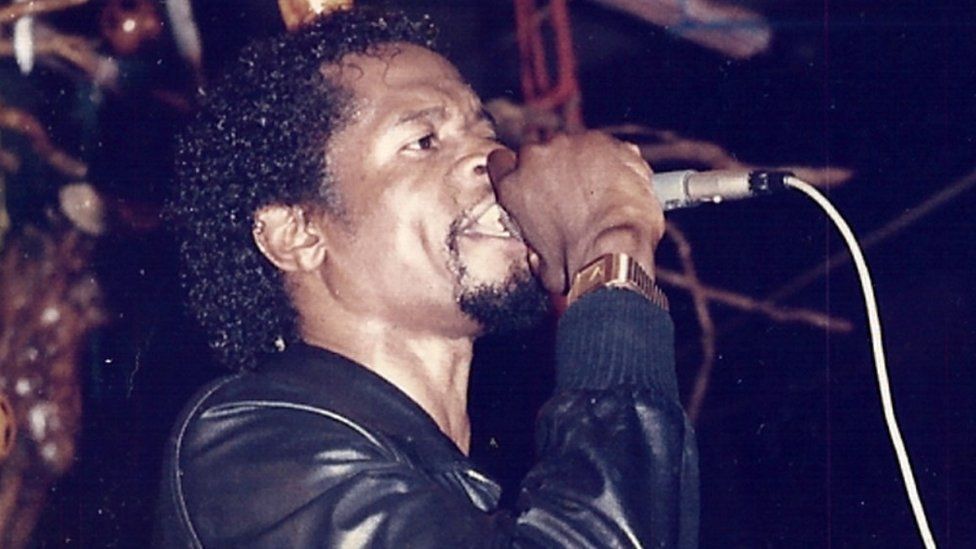This video can not be played
To play this video you need to enable JavaScript in your browser.
A group of Ugandan children is on the verge of glory after reaching the final of hit UK talent show Britain’s Got Talent, where they have won over the judges and the public with their dazzling dance moves and bubbly personalities.
They have already made history after becoming the first act to be given a “golden buzzer” by one of the judges before they had even finished their performance. This sent them straight through to Wednesday’s semi-final, where they received most public votes, meaning they are now among the 10 acts taking part in Sunday’s final.
The group of six children aged between five and 13 all come from impoverished backgrounds in the Ugandan capital, Kampala, where they were taken in and cared for by their guardian-turned manager Dauda Kavuma.
He told the BBC that he hopes their success can encourage other children living in similar circumstances.
“We feel so happy to keep doing this and to bring hope to all the children around the world who are in the ghetto, who are disadvantaged, who are less privileged – that they can make it in life.”
While they are winning over a new audience in the UK, the Ghetto Kids are already a global internet sensation and performed at the 2022 World Cup in Qatar.
But one of the group, Priscilla Zawedde, 13, told the BBC that winning the TV show – and the £250,000 ($313,000) prize money – would mean “a bigger house for everyone”.
Some 30 children currently share a five-bedroom house in Kampala, where they are looked after by Kavuma.
He set up the Inspire Ghetto Kids Foundation in 2007 to care for street children in the Kampala neighbourhood of Makindye and told the AFP news agency that having a bigger house would be a “dream” as the children would have more space.
They currently rely on donations from well-wishers, earnings from their social media posts as well as fees for live performances.
Kavuma also started life on the street before he was given a chance by a man who spotted him playing football and asked him if he wanted to go to school.
“He let me join his team and helped me pay my school fees. He was someone who helped me without knowing me. So from that day, I promised myself that when I grow up I’d hope to help a child one day,” Kavuma told the BBC.
But he then switched to music, which he is now using to transform the lives of others.
“Most people thought street kids… have no value in society but I thought otherwise,” he told AFP.
“I thought: ‘What if I use music, dance and drama to transform the underprivileged in the ghettos?'” he says.
Akram Muyana, 13, told the BBC that dancing had always been his way of escaping reality after his father died.
“Whenever I dance, I feel so happy, and my stress goes away. I started going to churches to dance to get money to give my mother for her to buy me clothes and food.”
This is the second generation of Kavuma’s Ghetto Kids to have found global stardom – the first generation was discovered dancing to Ugandan singer Eddy Kenzo’s “Sitya Loss” and went on to have millions of YouTube views.
Related Topics
-
-
2 September 2014

-
-
-
4 February

-

